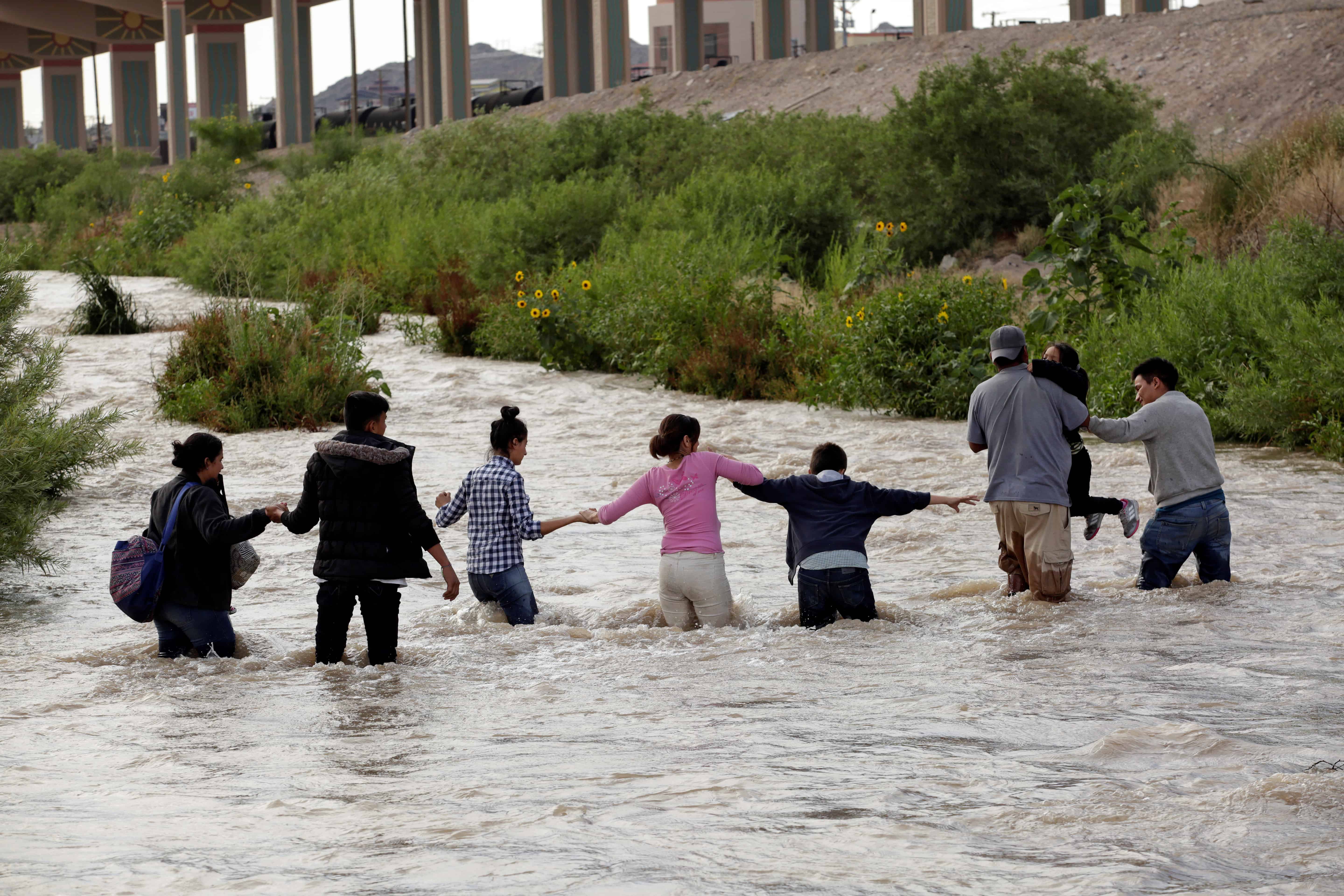The Bible asks me to welcome the stranger. My dad, however, always told me to lock the doors at night. The Bible often exhorts to go above and beyond our duty of giving to others what is due and invites us to love God’s people. However, we still lock our doors at night, and perhaps in some dangerous neighborhoods, we may also have a fence around the house. The call to love others can sometimes contrast with the human instinct of self preservation. In the same way, the current situation at the southern border draws contrasting exhortations and responses.
I spent this summer learning Spanish in Guatemala. During my time there, I had a chance to talk to numerous people about the immigration issue at the southern US border. One week I took Spanish classes in Santo Domingo, a small village near Colomba, Guatemala. As part of the immersion experience, students ate their meals at the homes of families in the village.
One rainy afternoon as I sat in the outdoor kitchen of Maria’s house, nibbling on a hot tortilla, I felt the stark contrast between my life in the US and life in a poor Guatemalan village. Here, five generations lived under a common roof. Every woman in the house was a mother before the age of 20. Every mother had lost a child in infancy. Stable work was a pipe dream and years of drought meant that one had to work even harder to coax the hilly terrain to yield some measly corn. The roof leaked at multiple places as a heavy tropical thunderstorm rolled through. A few chickens wandered around a neat stacks of firewood, pecking at flies. I felt far away from everything I had known and considered normal. My heart was moved as I wondered what the future held in store for Maria and her family. It was not exactly a pity that I felt, but more of a wonder at the question, “What if I had been born here?”
I let myself feel the sadness and hopelessness of the situation, both of Maria’s life and my inability to help in any way. I was angry at the unfairness of life as I pondered the inequality of wealth on a global scale. Oblivious to my inner torment, Maria serenely continued pressing the dough into flat tortillas.
Someone in the neighborhood had gone to the US, I hear her say. Now they have a nice two-story concrete house and a car. The loan that was needed to get the father to the US was paid off in just a few years. Now they can enjoy a relative prosperity that came from the remittance that he sends every month. Maria, my host, thinks that the Guatemalan economy is in a hopeless situation, blighted by corruption and oligarchies. All the stories she has heard from neighbors and from Facebook posts, make it seem like going to the US is the only option.
While the media often portray violence as the driver of immigration, that is not the reason in most cases. A recent report in WSJ stated, “While many Guatemalans seeking asylum in the U.S. cite fears of violence at home, a 2016 poll by the United Nations’ International Organization for Migration found nine of 10 Guatemalans said they emigrated for financial reasons.” Although it can be argued that extreme poverty is a form violence, the traditional definition of violence emphasizes threat to life from physical harm. In Maria’s case, like in the case of so many other immigrants, there is no direct and immediate threat to the lives of her family.
When I heard Maria’s stories and saw the world she lived in, my own immigrant self could empathize with her desire to immigrate to the US. It was the same magnetic pull I felt 10 years back, when I moved to the US. Granted when I immigrated to the US, I was not living in abject poverty like the kind that Maria lives in. However, I had the very human desire for a better life. I enrolled at the University of Minnesota for graduate school and moved to the US on a Student Visa. In a way, I can empathize with the pull immigrants feel towards the American Dream. Besides Maria’s longing for a better life, her desire to immigrate to the US was further fueled by the lies and propaganda that ‘coyotes’ spread among the people. “Just pay 70,000 Q ($10,000) and we will take you by bus to the US, where a better life awaits.” (For reference, the average day laborer in the Guatemalan countryside earns about 60 Q per day and lives paycheck to paycheck). There is no mention of the dangers involved in crossing the border, nor of the uncertainty and fear that comes from the lack of legal status once in the US. Given this situation of hopeless poverty, neighbors with folks in the US flaunting their wealth, and coyotes selling lies to boost their business; who wouldn’t want to go to the promised land that is the United States of America?
In this narrative so far, I have tried to justify the reason why people arrive at the border. I am not saying whether it is right or wrong for the US government to allow them in when they arrive. I am saying it is human to want a better life. For me, this shifted the apparent blame for the crisis from immigrants to the US government. In numerous media outlets, the arrival of immigrants is portrayed as an invasion by foreigners. They try to convey a sense of a sinister motivation on the part of the immigrants. However, as I have pointed out, it is a human desire to want a better life. Thus, we turn to the other party involved in this issue of immigration, the US government. The question is, what is the right thing for the US government to do? And since this is a functioning democracy, what would I want the US government to do?
As a Catholic, it is a constant struggle for me to listen to my head and heart. My head, appealing to logic, tells me that borders exist for a reason. Borders define a country; its economy, its laws, its foreign policy, its social safety net, etc. There is a reason why I show my passport when I enter a new country. For example, I had to show my passport when I entered Guatemala. Certain rights and social services are usually available only to citizens. The rule of law concerning immigration is necessary for clearly establishing the rights and responsibilities of the people living in a certain country. Thus, my head tells me that borders are a good and necessary thing as they provide a stable society for the human person to flourish in. My head in some ways observes the situation from a distance, carefully weighing the costs, benefits, and obligations in a given situation. It tries to strip away any emotions that may sway my decision on the issue at hand.
My heart calls me to see through the eyes of compassion. I feel a strong urge to do something about Maria’s situation. I want everyone to be safe, comfortable and happy. Further, Jesus asks me to welcome the stranger. After having lived in Xela for 6 weeks, I can say that some of them are more than strangers. They are my friends. I want to help my friend Maria and her family. Even pagans welcome their friends, the Bible says. If a fellow human is struggling, my heart tells me that I have to help. And so in this tension between the desire to welcome everyone and the reality of the modern nation state, I ask “what is the correct thing to do?”
Watch for a response to this article from Brian Strassburger, S.J.


